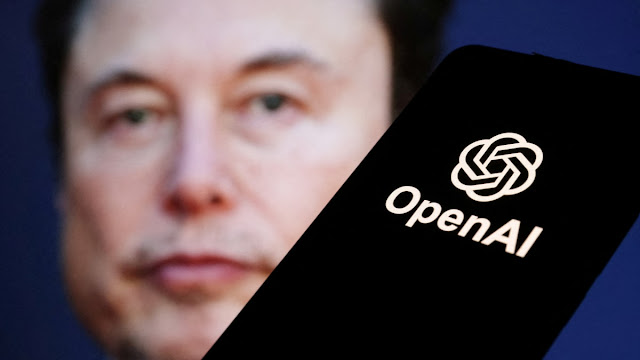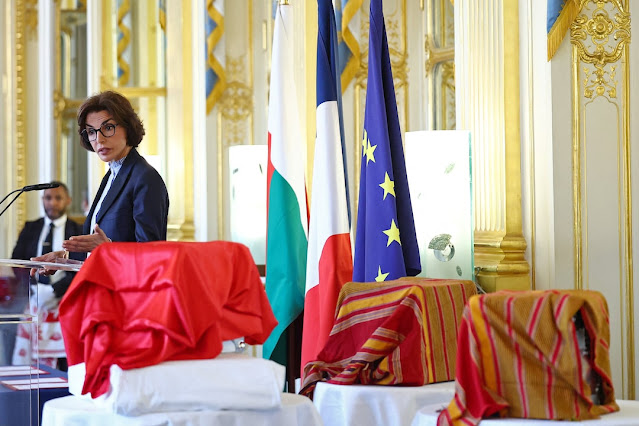Fort Worth, Texas – August 26, 2025 – In a bold and unprecedented legal move, billionaire entrepreneur Elon Musk’s artificial intelligence startup, xAI, has filed a blockbuster lawsuit against tech giants Apple and OpenAI in a U.S. federal court in Texas. The suit, lodged in the Northern District of Texas, accuses the two companies of orchestrating an “illegal conspiracy” to stifle competition in the rapidly evolving artificial intelligence (AI) sector, locking out innovators like xAI and its social media platform X. The allegations center on Apple’s exclusive partnership with OpenAI, which integrates the latter’s ChatGPT into Apple’s ecosystem of devices, including iPhones, iPads, and Macs. xAI claims this deal has unfairly suppressed its Grok chatbot and X app in Apple’s App Store, depriving them of visibility and market share. Seeking billions of dollars in damages, the lawsuit marks a significant escalation in Musk’s ongoing battles with both Apple and OpenAI, raising critical questions about competition, innovation, and market dominance in the AI industry.
A High-Stakes Legal Battle
The lawsuit, filed on Monday, August 25, 2025, represents one of the most audacious challenges to Big Tech’s influence in the AI sector to date. At its core, xAI alleges that Apple and OpenAI have “locked up markets to maintain their monopolies and prevent innovators like X and xAI from competing”. The complaint paints a vivid picture of a collusive arrangement designed to cement Apple’s dominance in the smartphone market and OpenAI’s lead in the generative AI chatbot space, at the expense of emerging competitors like xAI’s Grok.
The 61-page filing, submitted to the U.S. District Court for the Northern District of Texas, describes the Apple-OpenAI partnership as a “tale of two monopolists joining forces to ensure their continued dominance in a world rapidly driven by the most powerful technology humanity has ever created: artificial intelligence”. xAI argues that Apple’s integration of ChatGPT into its iOS ecosystem—announced in June 2024—gives OpenAI an unfair advantage by making ChatGPT the default AI chatbot for hundreds of millions of iPhone users, while simultaneously deprioritizing competing apps like Grok and X in the App Store.
Musk, who has never shied away from public confrontations, amplified the lawsuit’s claims on his social media platform X, writing, “A million reviews with 4.9 average for @Grok and still Apple refuses to mention Grok on any lists”. He had previously threatened legal action against Apple, accusing the company of engaging in practices that “make it impossible for any AI company besides OpenAI to reach #1 in the App Store”. The lawsuit builds on these grievances, alleging that Apple’s App Store policies and its exclusive deal with OpenAI constitute an “anticompetitive scheme” that stifles innovation and deprives consumers of choice.
The Apple-OpenAI Partnership: A Game-Changer or a Monopoly?
The crux of xAI’s complaint revolves around Apple’s decision to integrate OpenAI’s ChatGPT into its operating systems, a partnership unveiled at Apple’s Worldwide Developers Conference in June 2024. Under the agreement, ChatGPT is embedded into iOS, iPadOS, and macOS, allowing users to access its capabilities through Siri, Apple’s Writing Tools, and other native applications. This integration makes ChatGPT the only generative AI chatbot natively available on Apple devices, giving OpenAI access to billions of user prompts and interactions—valuable data that fuels the improvement of AI models.
xAI argues that this arrangement creates a significant barrier to entry for competitors. “If not for its exclusive deal with OpenAI, Apple would have no reason to refrain from more prominently featuring the X app and the Grok app in its App Store,” the lawsuit states. The plaintiffs claim that Apple has deliberately deprioritized Grok and other AI chatbot apps in its App Store rankings, limiting their visibility and download potential. Furthermore, xAI alleges that Apple has slowed the approval process for Grok’s updates, further hindering its ability to compete.
The lawsuit also highlights the market dominance of both companies. Apple controls approximately 65% of the U.S. smartphone market, while OpenAI’s ChatGPT holds an estimated 80% of the generative AI chatbot market. This dual dominance, xAI argues, allows the two companies to “lock up markets” and prevent competitors like Grok, which has struggled to gain more than a few percentage points of market share, from scaling and innovating. The complaint frames this as a broader threat to consumer choice, arguing that without the Apple-OpenAI deal, smartphone users would enjoy lower prices, greater variety, and faster innovation in AI technology.
Musk’s History with OpenAI and Apple
The lawsuit is deeply personal for Musk, who co-founded OpenAI in 2015 alongside CEO Sam Altman and others, with a mission to advance AI research for the public good. Initially a nonprofit, OpenAI transitioned to a for-profit model, a move that Musk has repeatedly criticized. He is already engaged in a separate lawsuit against OpenAI and Altman in federal court in California, accusing them of breaching the organization’s founding contract by prioritizing commercial interests over its original mission. That case, filed in 2024, remains ongoing and underscores the bitter rivalry between Musk and Altman, who once collaborated closely but have since become fierce competitors.
Musk’s grievances with Apple are equally longstanding. He has frequently criticized the company’s App Store policies, which impose a 30% commission on in-app purchases and tightly control app rankings and approvals. In August 2025, Musk publicly accused Apple of committing “an unequivocal antitrust violation” by favoring ChatGPT over Grok in its App Store rankings. His acquisition of X (formerly Twitter) for $33 billion in March 2025 was partly motivated by a desire to enhance xAI’s chatbot training capabilities, and he has integrated Grok into Tesla vehicles, further intertwining his business ventures.
OpenAI, for its part, has dismissed the Texas lawsuit as “consistent with Mr. Musk’s ongoing pattern of harassment”. A spokesperson for the company pointed to Altman’s earlier response to Musk’s accusations, in which he stated, “This is a remarkable claim given what I have heard alleged that Elon does to manipulate X to benefit himself and his own companies and harm his competitors and people he doesn’t like”. Apple, meanwhile, has not yet issued a public response to the lawsuit, though a company spokesperson previously defended its App Store as “fair and free of bias,” citing the inclusion of thousands of apps based on various ranking signals.
The Broader Context: AI and Antitrust
The xAI lawsuit arrives at a pivotal moment for the AI industry, which is experiencing explosive growth and intense competition. OpenAI’s ChatGPT, launched in November 2022, became the fastest-growing consumer application in history, amassing hundreds of millions of users and setting the standard for generative AI chatbots. Competitors like xAI, launched in 2023 to challenge OpenAI and other players like Microsoft-backed Anthropic and Chinese startup DeepSeek, have struggled to match ChatGPT’s scale and market penetration.
xAI’s Grok, designed to provide “truthful and helpful” answers and compete directly with ChatGPT, has garnered positive reviews, with Musk citing its 4.9 average rating from a million App Store reviews. However, the chatbot has failed to break into the top ranks of the App Store, a fact xAI attributes to Apple’s alleged favoritism toward OpenAI. The lawsuit notes that other AI apps, such as DeepSeek and Perplexity, have occasionally reached the top spot in certain markets, suggesting that Apple’s policies are not entirely prohibitive but may disproportionately favor ChatGPT.
The case also draws parallels to broader antitrust scrutiny of Apple’s App Store practices. In a high-profile case brought by Epic Games, the maker of Fortnite, a federal judge in 2021 ordered Apple to allow greater competition for app payment options, a ruling that has emboldened other companies to challenge Apple’s control over its ecosystem. The U.S. Department of Justice also filed an antitrust lawsuit against Apple in 2024, accusing the company of using its smartphone dominance to suppress competition from “super apps” like X, which aim to offer multifunctional services across social media, finance, and entertainment.
Legal experts see the xAI lawsuit as a potential landmark case for defining the AI market in antitrust law. “It’s a canary in the coal mine in terms of how courts will treat AI, and treat antitrust and AI,” said Christine Bartholomew, a professor at the University at Buffalo School of Law. She noted that the case could establish whether there is a distinct market for AI chatbots and how courts will assess anti-competitive behavior in this emerging sector. However, Apple may counter that its partnership with OpenAI was a legitimate business decision in a competitive environment, and that it has no obligation to promote rival apps like Grok.
Musk’s Broader Agenda
The Texas lawsuit is part of Musk’s broader campaign to challenge what he perceives as monopolistic practices in the tech industry. His acquisition of X and integration of Grok into Tesla vehicles reflect his ambition to create a “super app” ecosystem that rivals the likes of Apple and Google. xAI’s vision, as outlined in the lawsuit, is to build a platform that reduces dependence on expensive hardware like iPhones by offering seamless services across devices. Apple, xAI argues, views this vision as a threat to its smartphone monopoly and has colluded with OpenAI to suppress it.
Musk’s legal battles extend beyond this case. In addition to his California lawsuit against OpenAI, he has shifted several of his companies’ headquarters to Texas following a Delaware judge’s 2024 ruling voiding his Tesla compensation package. He also updated X’s terms of service to require legal disputes to be filed in Texas courts, a strategic move to leverage the state’s business-friendly legal environment. The choice of Texas for the xAI lawsuit is no coincidence, as the state’s federal courts are known for their conservative leanings and skepticism of Big Tech.
Industry and Market Implications
The lawsuit has already sent shockwaves through the tech industry, with analysts warning that it could reshape the competitive landscape for AI. The integration of ChatGPT into Apple’s ecosystem has given OpenAI a significant advantage, providing access to vast amounts of user data that competitors like xAI cannot match. This data is critical for training AI models, and xAI argues that the Apple-OpenAI deal creates a feedback loop that entrenches OpenAI’s dominance while stifling innovation from rivals.
Financial markets reacted cautiously to the news, with Apple shares edging higher on Monday afternoon, suggesting investor confidence in the company’s ability to weather the legal challenge. However, the broader implications for the AI industry are less certain. If xAI’s lawsuit succeeds, it could force Apple to open its ecosystem to competitors, potentially leveling the playing field for AI startups. Conversely, a victory for Apple and OpenAI could reinforce their dominance, making it harder for smaller players to gain traction.
Antitrust experts have mixed views on the case’s prospects. Herbert Hovenkamp, a professor at the University of Pennsylvania’s law school, noted that Apple’s dominant position in the smartphone market could bolster xAI’s claims of illegal tying between iPhone sales and ChatGPT integration. However, he cautioned that Apple could argue that its partnership with OpenAI was driven by security and operational considerations, not anti-competitive intent. The fact that other AI apps, such as DeepSeek and Perplexity, have topped App Store charts in some markets since the OpenAI deal was announced could weaken xAI’s claims of exclusion.
The Personal and Political Dimensions
The xAI lawsuit is as much a personal vendetta as it is a legal battle. Musk’s falling out with Altman and OpenAI has been well-documented, with the billionaire accusing his former co-founder of abandoning OpenAI’s nonprofit mission for profit-driven motives. The Texas lawsuit echoes themes from Musk’s California case, portraying OpenAI as a threat to humanity that prioritizes commercial gain over safety and public good. OpenAI, in turn, has accused Musk of “harassment” through litigation and social media attacks, including a “sham bid” to buy the company for $97.4 billion in an attempt to harm its business relationships.
Musk’s criticisms of Apple also reflect his broader distrust of Big Tech’s influence. His public spats with the company, including his 2022 threat to develop a Tesla smartphone to compete with the iPhone, highlight his frustration with Apple’s walled-garden ecosystem. The xAI lawsuit is a direct challenge to this model, accusing Apple of using its App Store dominance to pick winners and losers in the AI market.
Politically, the lawsuit aligns with growing bipartisan scrutiny of Big Tech’s market power. In the U.S., both Republican and Democratic lawmakers have called for stronger antitrust enforcement against companies like Apple, Google, and Meta. The xAI case could bolster these efforts, particularly if it establishes a precedent for defining AI as a distinct market subject to antitrust regulation. However, Musk’s polarizing persona and his recent alignment with conservative causes, including his support for President Donald Trump’s cost-cutting initiatives, may complicate the case’s reception in liberal-leaning legal circles.
The Road Ahead
The xAI lawsuit is unlikely to be resolved quickly, given the complexity of the issues and the high stakes for all parties involved. Legal proceedings in the Northern District of Texas could take months or even years, with potential appeals reaching the U.S. Supreme Court. xAI is seeking both monetary damages—potentially in the billions—and a permanent injunction to prevent Apple and OpenAI from continuing their alleged anti-competitive practices.
For xAI, the lawsuit is a high-risk, high-reward gamble. A victory could force Apple to rethink its App Store policies and give Grok a fighting chance to compete with ChatGPT. A loss, however, could entrench Apple and OpenAI’s dominance and deal a blow to Musk’s AI ambitions. For Apple and OpenAI, the case poses reputational and financial risks, particularly as they face mounting scrutiny over their market practices.
The broader implications for the AI industry are profound. As AI becomes increasingly integral to daily life—from smartphones to electric vehicles—the question of who controls access to this technology is becoming a defining issue. The xAI lawsuit could set a precedent for how courts address competition in the AI era, shaping the future of innovation, consumer choice, and market dynamics.
Conclusion
Elon Musk’s xAI has thrown down the gauntlet with its lawsuit against Apple and OpenAI, accusing two of the world’s most powerful tech companies of conspiring to monopolize the AI sector. The case, rooted in allegations of anti-competitive behavior and fueled by Musk’s personal and professional rivalries, is a watershed moment for the tech industry. As the legal battle unfolds in Texas, it will test the boundaries of antitrust law, the power of Big Tech, and the future of AI innovation. For Musk, it’s a chance to reshape the competitive landscape and give xAI’s Grok a fighting chance. For Apple and OpenAI, it’s a challenge to defend their partnership and maintain their dominance. And for the world, it’s a front-row seat to a high-stakes showdown that could redefine the rules of the AI game.





